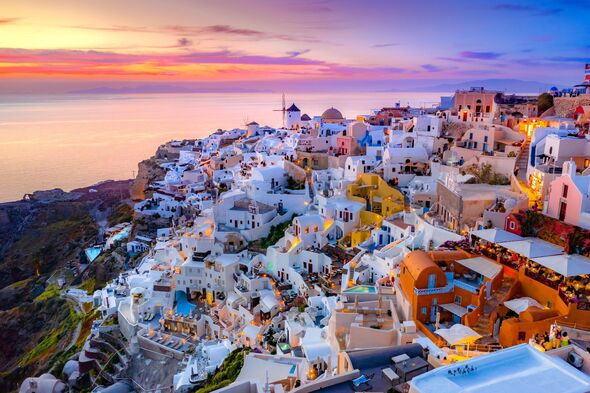To tackle the overtourism in Greece, the authorities in the popular European country are planning to implement a new measure that is hoped to curb mass tourism on the island. The Mayor of Santorini, Nikos Zorzos has called for urgent action to stop a construction spree that risks spurring the island’s ruination.
The tourist hotspot is likely to welcome around 3.4 million tourists this year and the mayor believes that the destination will not be able to “save itself” if runaway development is not instantly curbed.
The authorities claimed that the island doesn’t need any more hotels.
He told the Guardian: “We live in a place of barely 25,000 souls and we don’t need any more hotels or any more rented rooms.
“If you destroy the landscape, one as rich as ours, you destroy the very reason people come here in the first place.”
Santorini, renowned for its stunning sunsets and distinct natural beauty, boasts an estimated 80,000 hotel beds—more per square metre than any other Greek destination, except for Kos and Rhodes.
Roughly a fifth of the southern Aegean island is already covered in concrete. However, despite concerns from ecologists, authorities in Athens approved more building permits between 2018 and 2022, allowing development on an additional 449,579 square meters of land—approximately 2 percent of the island’s 76 sq km (30 sq mile) area.
“The environment is our home and destroying it we harm ourselves,” he said. “We should know from the past: no ancient civilisation that respected beauty ever declined.”
Greece is now one of the world’s top 10 destinations, with the tourism minister, Olga Kefalogianni, announcing that the country has set itself the goal of becoming a “global tourism power”.
By 2028, the European country aims to draw nearly 40 million tourists across the country—5.5 million more than this year and almost four times its current population.
“Mass tourism really took off in the 1990s and that’s when you began to see change,” he said.
Santorini is not alone in facing challenges from its popularity. Other Aegean idylls, once deemed off the beaten track, have also come up against the unstoppable force of tourism.
